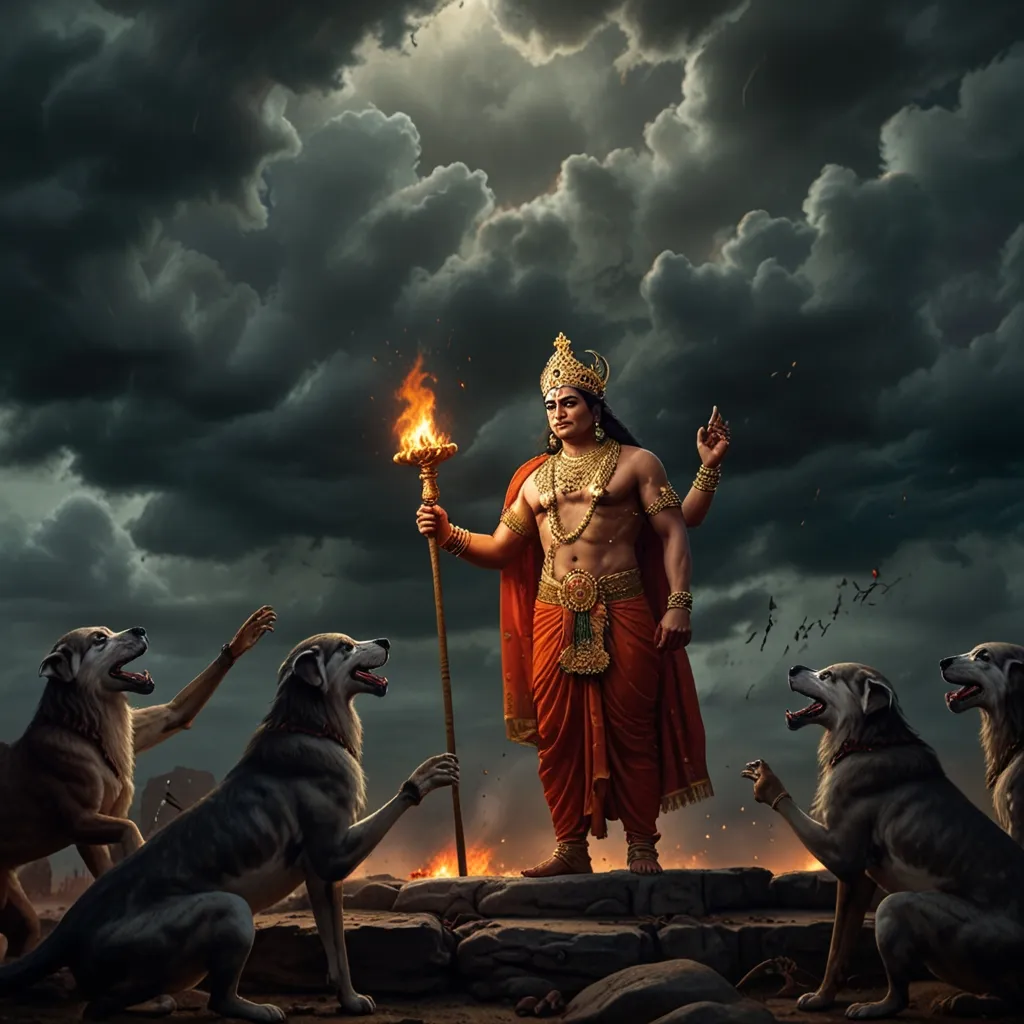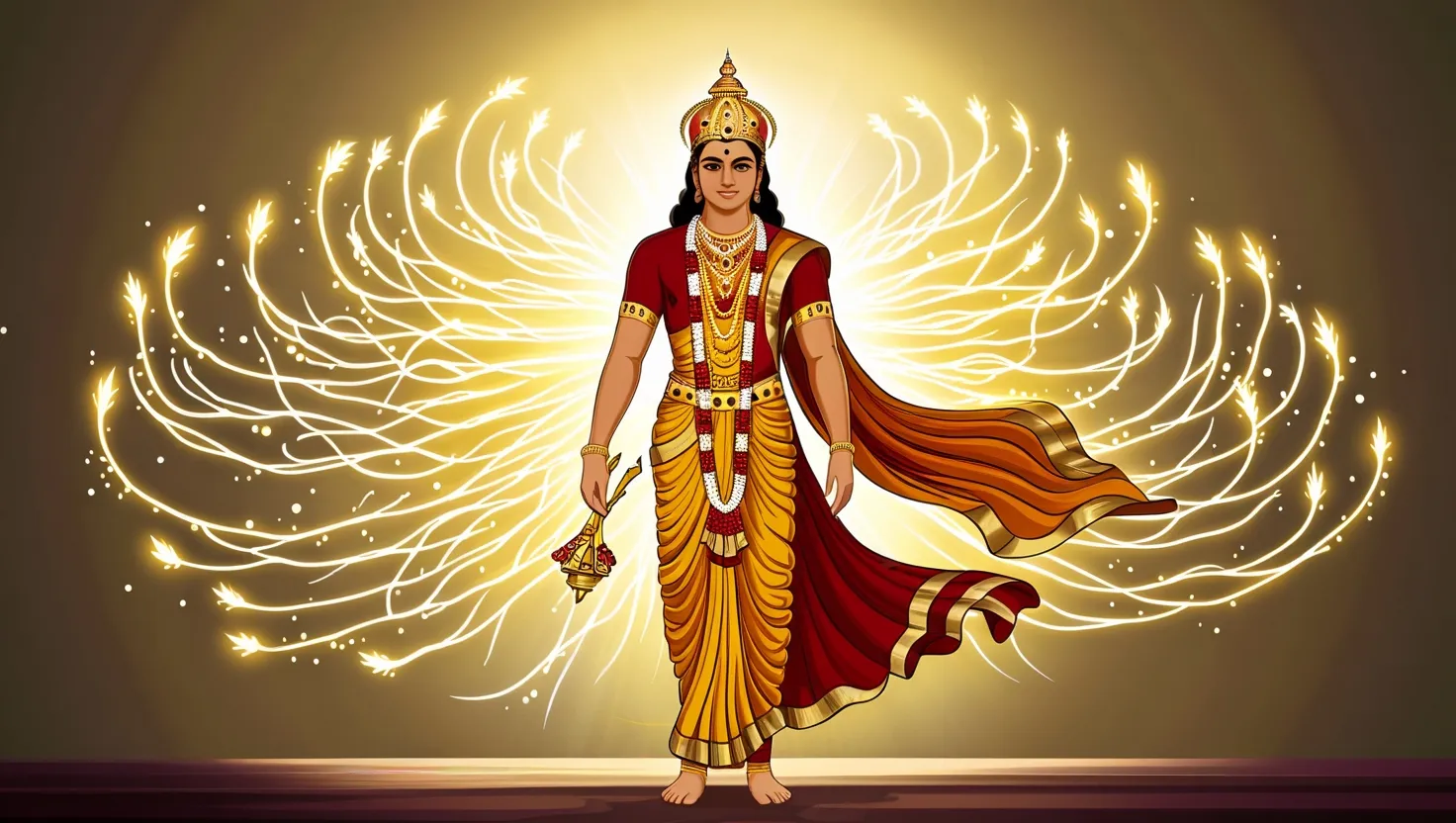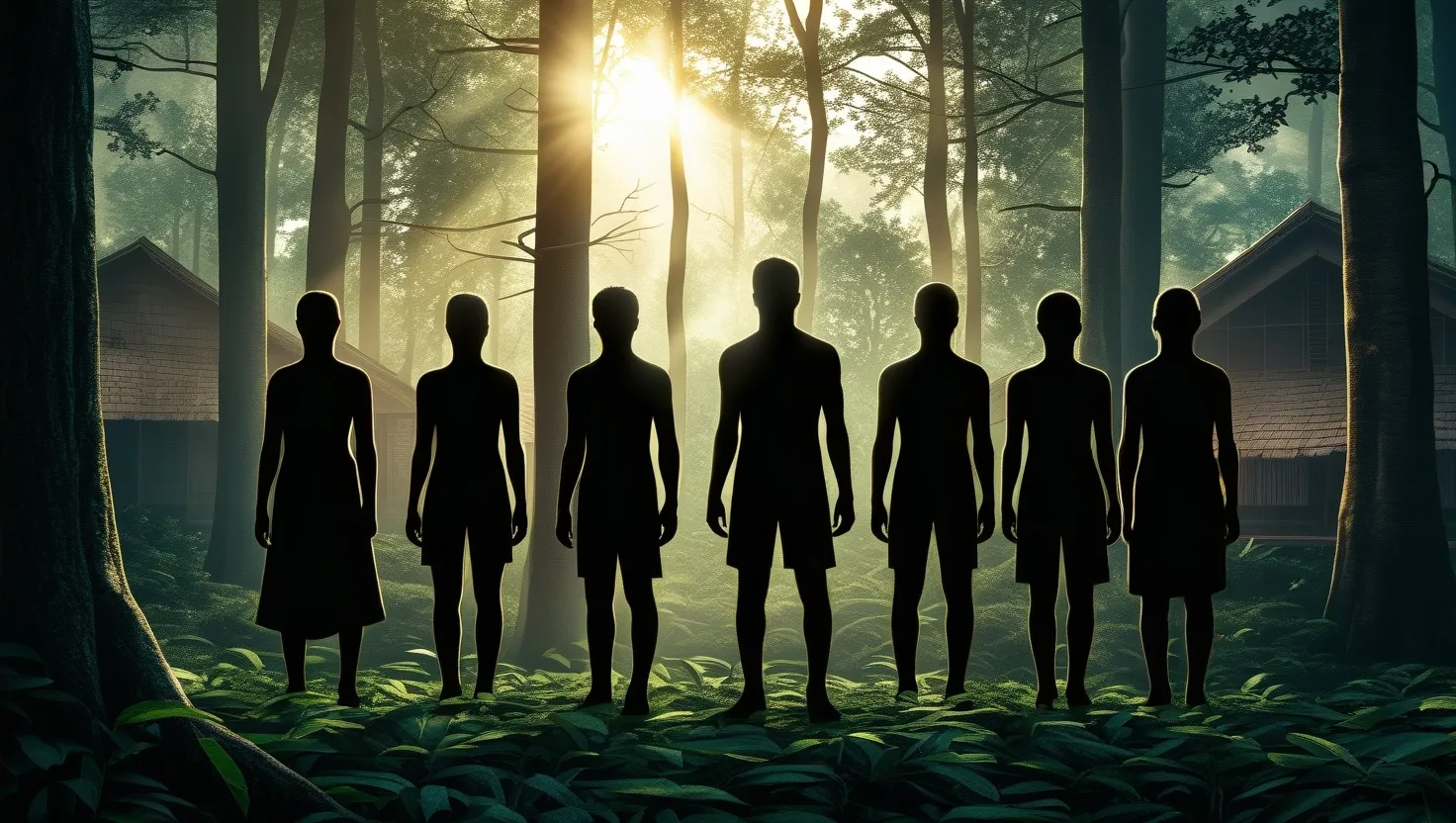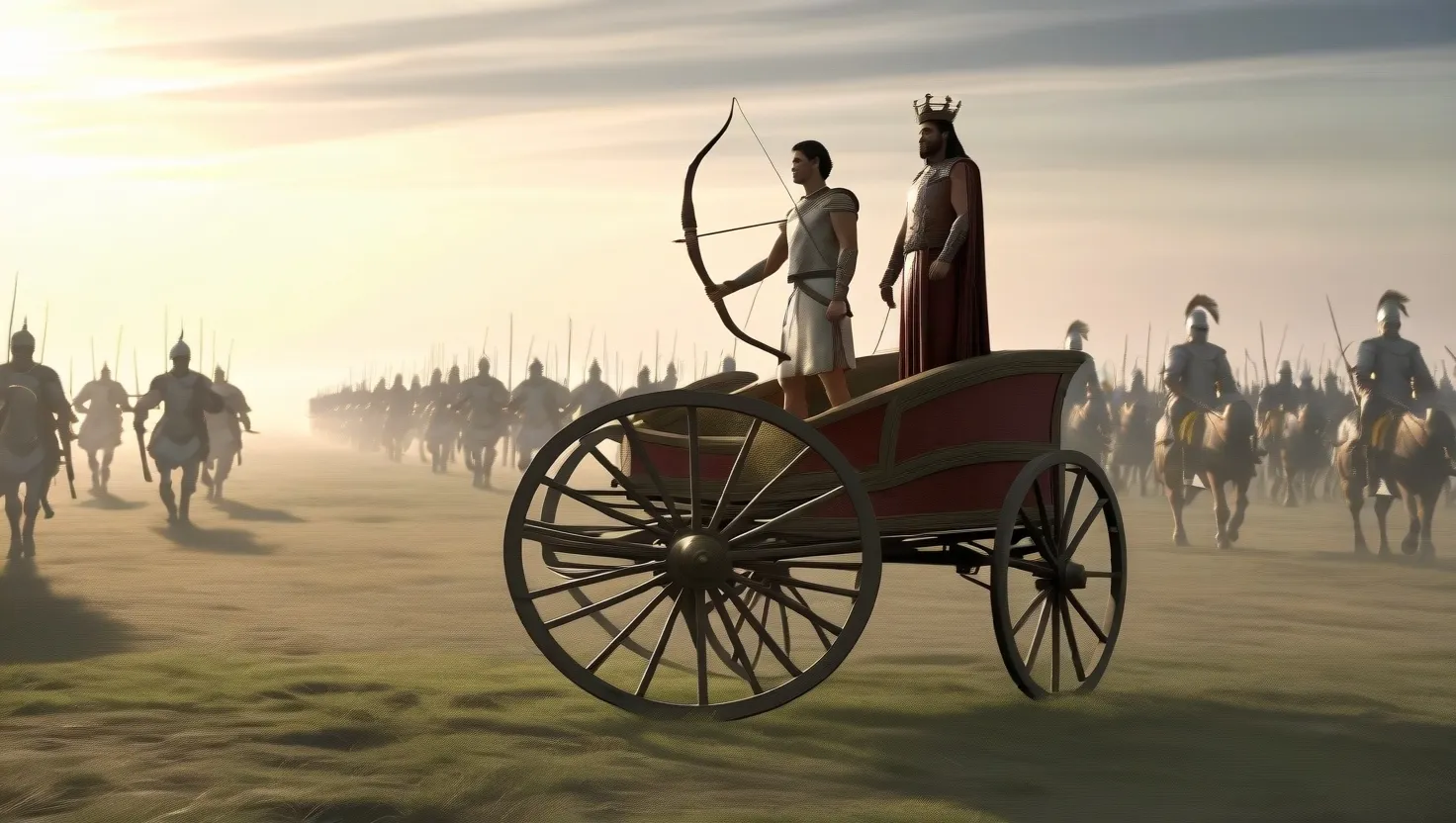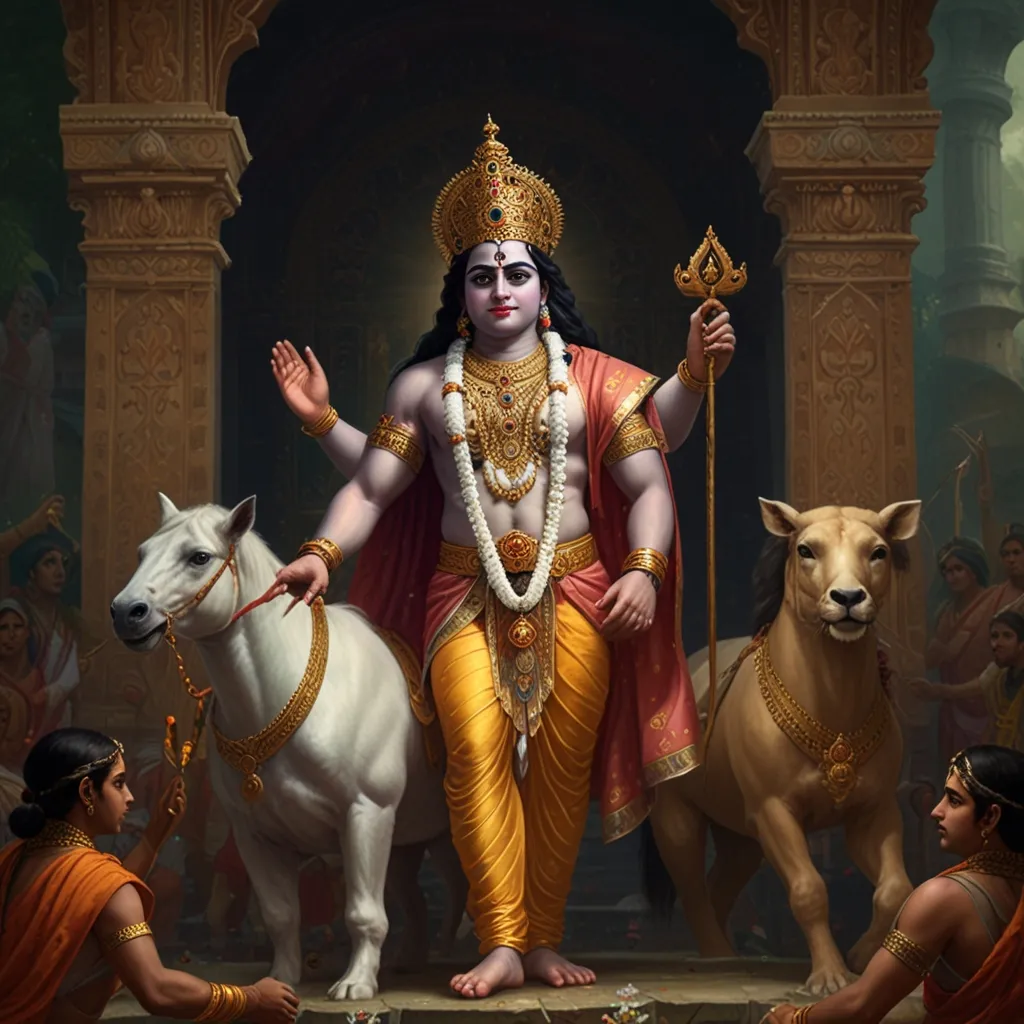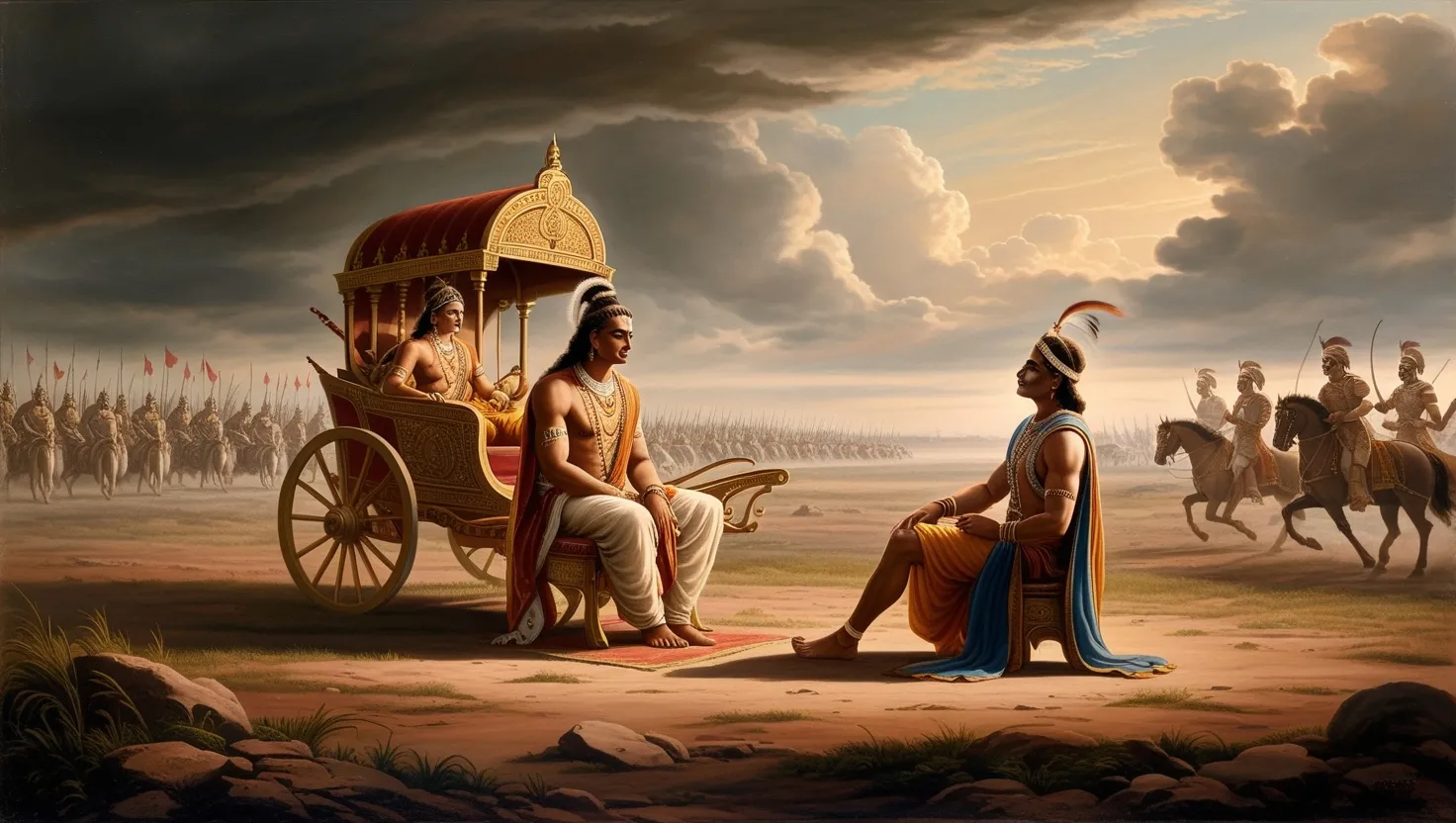In the grand saga of the Mahabharata, the emergence of Duryodhana, the eldest offspring of King Dhritarashtra and Queen Gandhari, unfolds as a tale enveloped in mystery and dire premonitions.
Gandhari’s journey starts with her tying the knot with the blind king Dhritarashtra, blessed by the sage Vyasa with the promise of a hundred sons. This blessing was his way of showing gratitude for Gandhari’s generosity when he visited their palace.
Gandhari’s pregnancy, however, was far from ordinary. Imagine the sheer agony and frustration of carrying a pregnancy not for nine months but for an exhausting two years. Her sister-in-law, Kunti had already birthed a son named Yudhishthira, which only added to her growing anxiety. In a moment of desperation, Gandhari struck her womb, causing a hardened mass of flesh to emerge instead of a baby.
When Vyasa heard about this unusual occurrence, he came to Gandhari’s aid. He had her bring one hundred jars filled with ghee, into which the mass of flesh was placed. With a sprinkle of water from Vyasa, the flesh divided into a hundred thumb-sized pieces. These pieces were then sealed in the jars and buried for two years.
This prolonged and peculiar gestation weighed heavily on Gandhari. The distress, anger, and her burning desire to fulfill the prophecy of having a hundred sons drove her actions.
After two long years, the jars were opened, revealing one hundred boys. The first son, named Duryodhana, was born amidst ominous events. The baby’s arrival was accompanied by unsettling signs - he roared like a wild animal, and the air filled with the cries of vultures, jackals, and crows. Strong winds blew, fires blazed; clearly signaling something was amiss.
Witnessing these bad omens, King Dhritarashtra sought advice from his kingdom’s Brahmins and wise men to determine if Duryodhana should be the rightful heir despite the grim signs. The elders, including the wise Vidura, advised abandoning the child due to the calamities his birth might bring to their dynasty. However, Dhritarashtra’s love for his firstborn son clouded his judgment, leading him to disregard their counsel.
Duryodhana’s early years were shadowed by his sense of entitlement and intense rivalry with his cousins, the Pandavas. Convinced that the throne of Hastinapura was his by birthright, he deeply resented the Pandavas, believing they were favored unfairly. His resentment was further fueled by his maternal uncle, Shakuni, who meticulously planned many of Duryodhana’s schemes against the Pandavas.
Growing up, Duryodhana honed his skills in martial arts, particularly wielding the mace with remarkable prowess under the mentorship of the great warrior Balarama. Despite his undeniable physical strength and bravery, his arrogance and insatiable greed shaped his destiny.
Duryodhana’s hatred for the Pandavas stemmed from his conviction that he was the rightful heir to the throne, a sentiment that saw him at odds with his cousins. This animosity ultimately led to the epic Kurukshetra War. Aided by his uncle Shakuni and other formidable warriors, Duryodhana clashed with the Pandavas in a battle that became a defining moment in the Mahabharata. Despite his valor, Duryodhana was defeated by Bhima, one of the Pandava brothers.
The birth and life of Duryodhana is a significant turning point in the Mahabharata, intertwined with unusual circumstances and dire omens that foreshadowed the many conflicts to come. His story serves as a stark reminder of the consequences that unchecked ambition, greed, and arrogance can bring. Even with his exceptional skills and courage, Duryodhana’s fall was inevitable, illustrating the timeless lessons on the importance of humility and moral integrity.
Duryodhana’s tale, from his ominous birth to his inevitable downfall, reverberates through the ages as a dark reflection on the destructive nature of hubris and rivalry. His life, though marked by incredible achievements in strength and combat, was ultimately a tragic testimony to the perils of allowing ambition to run unchecked.
